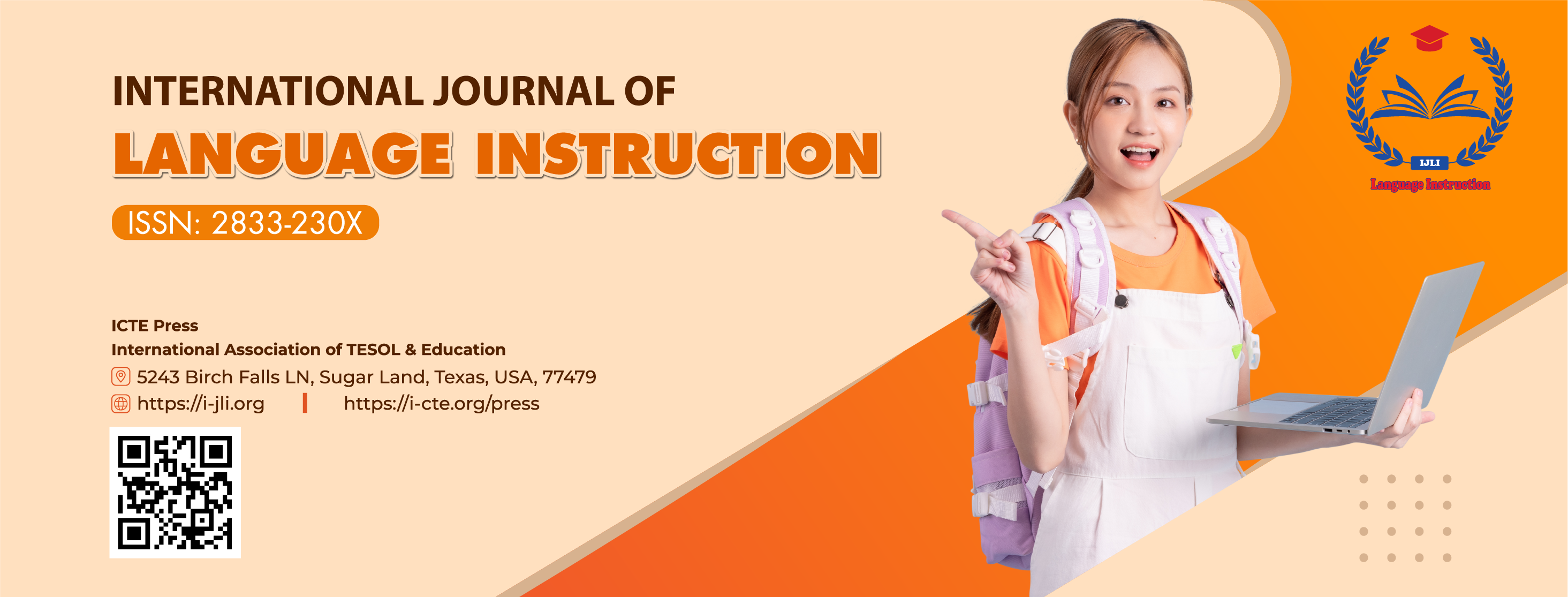Review of Literary Theory for Robots: How Computers Learned to Write
DOI:
https://doi.org/10.54855/ijli.25444Keywords:
computer, policies , artificial intelligence, robotsAbstract
This book review deals with how the idea of a collabortion between AI intelligence and human intelligence. The book review shares how, for many years, these two entities have been working together, and their collaboration has given ways to many discoveries and innovations. This review shares key insights of the book in conversation with other prominent scholars.
References
Bakhtin, M. M. (2010). Speech Genres and Other Late Essays. University of Texas Press.
Berlin, J. A. (1984). Writing Instruction in Nineteenth-Century American Colleges. CSIU Press.
Bruffee, K. A. (1984). Collaborative learning and the “Conversation of Mankind”. College English, 46(7), 635-652.
Chan, C. K. Y., & Hu, W. (2023). Students’ voices on generative AI: Perceptions, benefits, and challenges in higher education. International Journal of Educational Technology in Higher Education, 20(1), 43. https://doi.org/10.1186/s41239-023-00411-8
Dobrin, S. I. (2023). Talking about Generative AI: A Guide for Educators. Broadview press.
Sandhu, S. (2024). Literary Theory for Robots by Dennis Yi Tenen Review – the Deep Roots of AI. The Guardian, https://www.theguardian.com/books/2024/mar/28/literarytheory-for-robots-by-dennis-yi-tenen-review-the-deep-roots-of-ai.
Hart-Davidson, W. (2018). Writing with Robots and Other Curiosities of the Age of Machine Rhetorics. In The Routledge Handbook of Digital Writing and Rhetoric (pp. 248-255). Routledge.
Rodriguez, A. (2025). Book Review: AI-Powered Education: Innovative Teaching Strategies to Elevate Student Learning. International Journal of TESOL & Education, 5(3), 182-186. https://doi.org/10.54855/ijte.255311
Sherma, A. B. (2024). ChatGPT’s Impact on Students’ Writing: Lessons Learned from Nepali Undergraduate Students. Journal of NELTA, 29(1), 83–96.https://doi.org/10.3126/nelta.v29i1.72636
Downloads
Published
Issue
Section
License
Copyright (c) 2025 Amar Bahadur Sherma

This work is licensed under a Creative Commons Attribution 4.0 International License.
The copyright of all articles published in the International Journal of Language Instruction (ijli) remains with the Authors, i.e. Authors retain full ownership of their article. Permitted third-party reuse of the open access articles is defined by the applicable Creative Commons (CC) end-user license which is accepted by the Authors upon submission of their paper. All articles in the ijli are published under the CC BY-NC 4.0 license, meaning that end users can freely share an article (i.e. copy and redistribute the material in any medium or format) and adapt it (i.e. remix, transform and build upon the material) on the condition that proper attribution is given (i.e. appropriate credit, a link to the applicable license and an indication if any changes were made; all in such a way that does not suggest that the licensor endorses the user or the use) and the material is only used for non-commercial purposes.
Authors are able to enter into separate, additional contractual arrangements for the non-exclusive distribution of the journal's published version of the work (e.g., post it to an institutional repository, in a journal or publish it in a book), with an acknowledgment of its initial publication in this journal.











